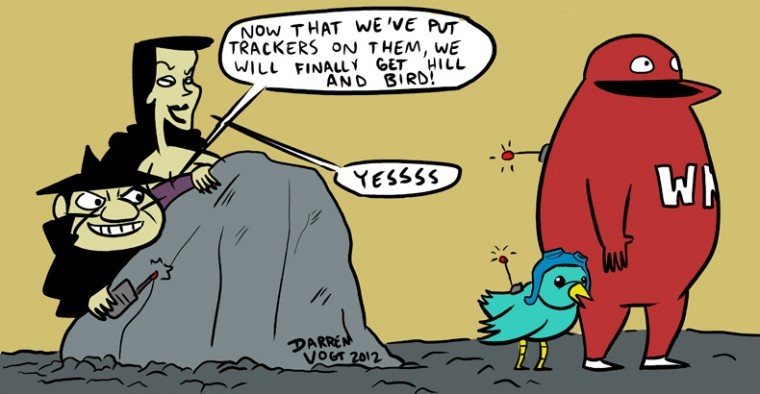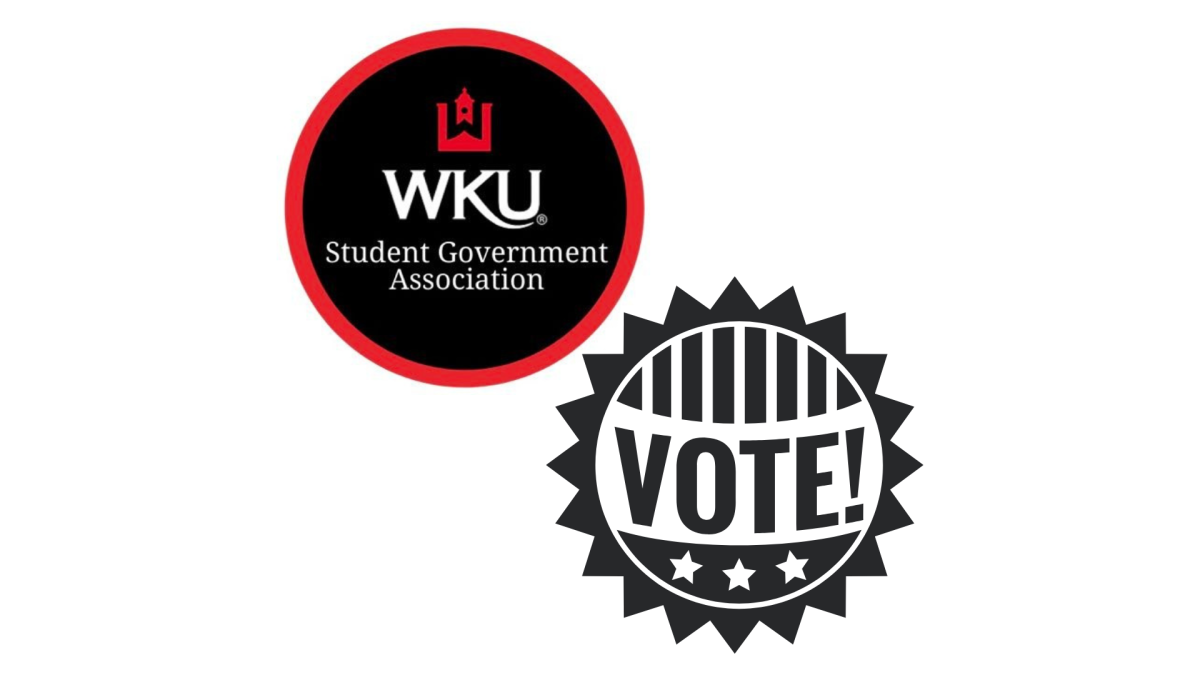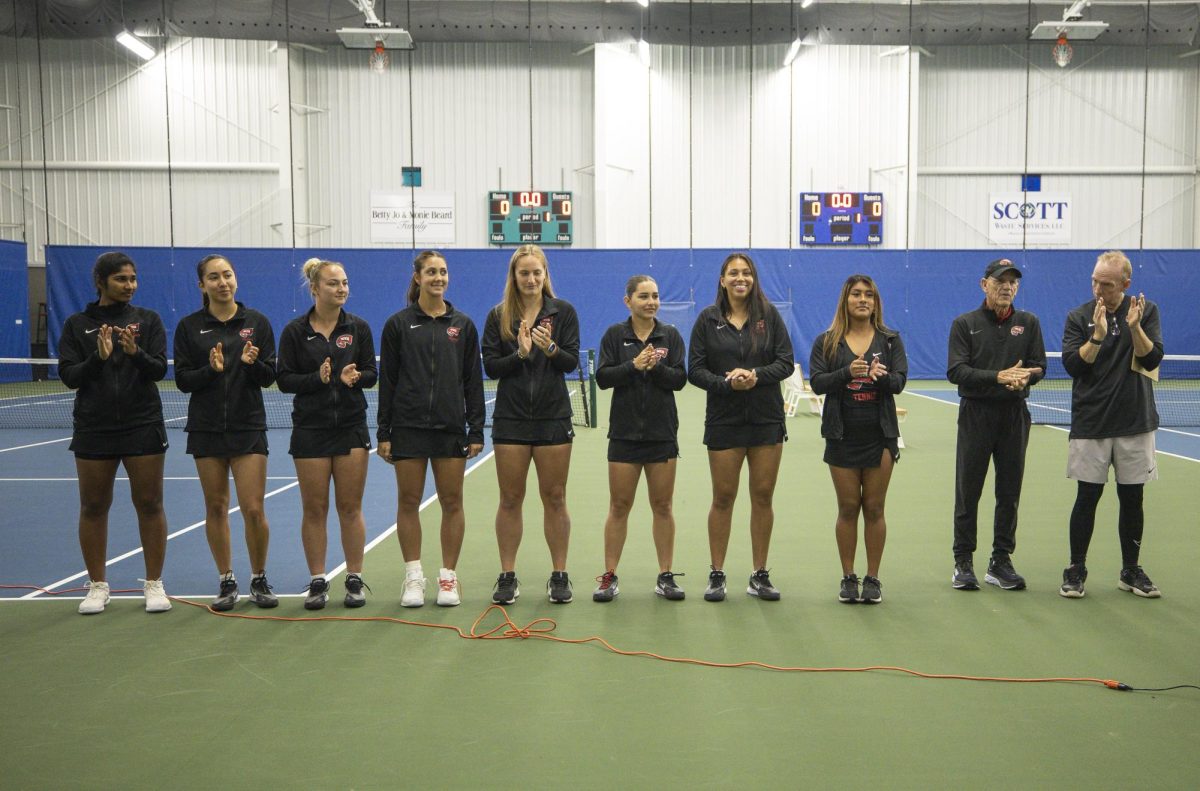EDITORIAL: Students deserve First Amendment rights
February 24, 2012
THE ISSUE: WKU administration is looking to shut down several Twitter parody accounts and is sending students to Judicial Affairs for tweets they consider negative against WKU.
OUR STANCE: WKU’s administration should not be monitoring social networking sites with the intent of disciplining students who post things they deem “inappropriate.” Administrators’ main focus should be improving WKU as a whole. The first step they can take is to listen to students’ suggestions via social media.
When WKU first thought about the possibility of punishing students for using social media “inappropriately,” it crossed the line.
Now that these policies have been published for students to read and understand, accompanied by the subsequent backlash the policies generated on social media, the administration’s response has been disappointing.
To put it simply, the university did not fully understand Twitter’s policies, nor did it understand WKU’s own boundaries before trying to limit students’ First Amendment rights by threatening to punish them if they shared anything negative about WKU.
It’s unreasonable to think that every day is perfect for 21,000 students at WKU. Students complain about busy-work assignments. They can’t find a parking space near where they needed to be five minutes ago. They aren’t happy that WKU’s men’s and women’s basketball teams are in the shadow of 20-loss seasons.
Life happens, and students are likely to share some unpleasant or frustrating experiences.
They should not be threatened with repercussions.
Then there’s the issue of fake accounts that are not illegal in Kentucky. Twitter allows for fake accounts as long as they’re correctly labeled. When an account is adequately labeled as a fake account, it’s not considered impersonation.
The Herald agrees with the administration that harassment certainly needs to be reported. Even in the event that a student tweets something that may imply harming his or herself or someone else, the Herald believes the administration has every right to, and really should, intervene.
But if a student is upset or displeased with something and they want to tweet about it or post a Facebook status, that student has every right to. That’s protected by the First Amendment.
Frankly, that type of dialogue should be welcome in a university setting where critical thinking is, or at least should be, encouraged.
It’s clear the administration dove into this policy/practice without careful legal consideration. Counsel with First Amendment experts clearly wasn’t considered.
Students are going to tweet negative things about the school. It’s inevitable. Not every student will enjoy every second of their experience at WKU, and that’s OK. But they should be allowed to voice their displeasure and concerns in a public forum. Students are not obligated to be mouthpieces for the university.
Oftentimes, what students tweet with the WKU hashtag are legitimate gripes or concerns. The university could utilize the hashtag and field questions or concerns from students and help answer them. If enough people are tweeting negatively about a certain issue, then it’s probably something the school should take notice of and act on.
What’s a little disappointing, however, is how the university has responded to the Herald’s reporting of their plans to crack down on social media use.
To say the Herald “implied” that WKU monitors and censors every word that is said about WKU and immediately punishes anyone who say anything negative is a little off base. Our reporting was done through facts, the Constitution, consultation with First Amendment attorneys and quotes that the university gave our reporters.
In actuality, Corie Martin, director of WKU’s Creative Web Services, told the Herald she checks the WKU hashtag daily and sends information she deems inappropriate to Judicial Affairs.
It’s also concerning that President Gary Ransdell told the Herald he didn’t have time to read the article, adding that the issue regarding social media was being given too much attention and there’s been some overreaction to it. Given the overwhelming reaction by students on Twitter, it’s hard to prove that the issue was blown out of proportion. Clearly it mattered to students.
Why is all of this social media policy movement directed toward controlling students’ use on social media? Is the same watchdog mentality being used for adults and faculty who represent the school?
The university is correct in saying it has done a lot of good with social media. The Herald commends its efforts.
With the digital world we live in today, it would be irresponsible for WKU not to use social media as part of the university’s overall marketing mix.
However, there is a fine line between engagement and control — a line that WKU officials have yet to understand. Like all of us, WKU officials have much to learn about acceptable practices for social media.
But focusing on regulating only student speech and implementing a policy to punish students who tweet anything negative about WKU is clearly a violation of the First Amendment — students’ rights must be protected.
This editorial represents the majority opinion of the Herald’s 10-member editorial board.

























